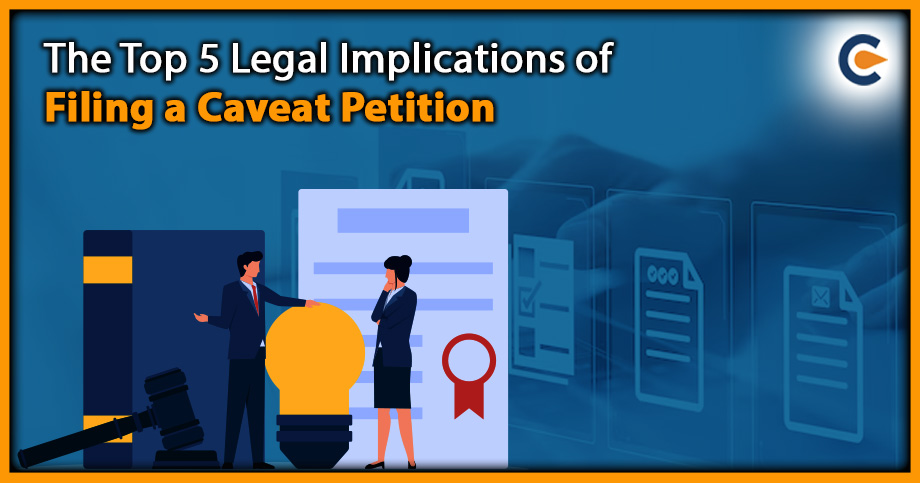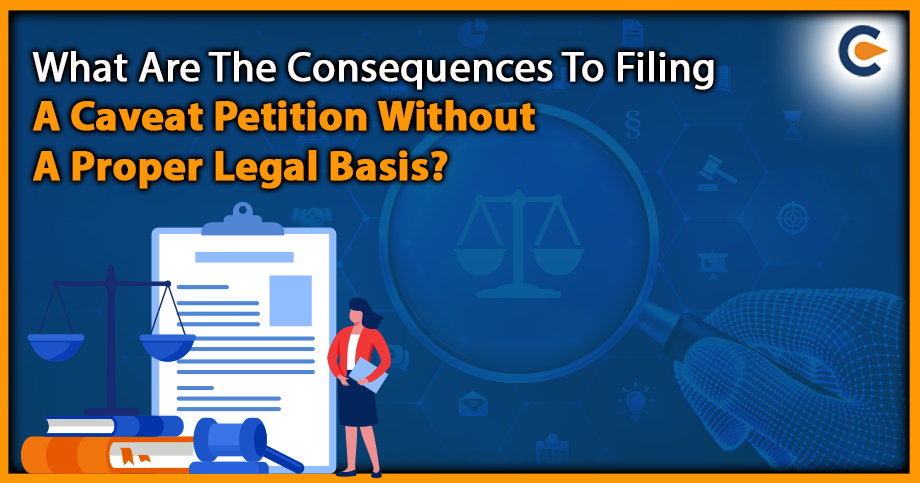A Caveat Petition is a legal instrument filed by a party in a court of law. The purpose of filing a Caveat Petition is to ensure that the court does not pass any ex parte orders or orders without giving notice to the party who filed the petition. In simpler terms, a Caveat Petition is a warning to the court to give notice to the petitioner before taking any action in a particular case.
The Legal Implications Of Filing A Caveat Petition Are:
Court Proceedings
When a Caveat Petition is filed, it acts as a protective shield against ex-parte orders, which means that the court cannot pass any order without hearing both sides of the case. As a result, the petitioner has an opportunity to participate in the legal proceedings and present their case before the court. This can be especially beneficial if the petitioner has crucial evidence or arguments to present. However, it is important to note that the petitioner’s participation in the proceedings does not guarantee a favourable outcome. The court will make its decision based on the merits of the case and the evidence presented by both parties.
Time Limitations
A Caveat Petition is only valid for a limited period, usually six months. After the expiration of the petition, the petitioner must file for a renewal if they wish to continue being notified of any legal proceedings. It is important to keep track of the expiration date of the petition to avoid losing the protection it provides. If the petitioner fails to renew the petition, the court may pass orders without notifying them, which can be detrimental to their case.
Cost Implications
Filing a Caveat Petition incurs a cost, which varies depending on the court where it is filed. This cost is usually nominal, but it can add up if the petitioner needs to file for multiple renewals or in multiple courts. Additionally, if the petitioner loses the case, they may be responsible for paying the legal costs of the other party. This is an important consideration when deciding whether to file a Caveat Petition, as it can add to the overall cost of the legal proceedings.
Effect on Reputation
Filing a Caveat Petition may have an impact on the reputation of the petitioner, as it implies that there is a potential legal dispute that needs to be resolved. This can be particularly relevant for individuals or businesses that operate in a public-facing capacity, as it may negatively affect their reputation and relationships with customers or partners. It is important to consider the potential reputational impact before deciding to file a Caveat Petition.
Legal Strategy
Filing a Caveat Petition is often a strategic decision, and it can have an impact on the overall legal strategy of the petitioner. For example, it may provide the petitioner with more time to prepare their case or negotiate a settlement with the other party. On the other hand, it may also prompt the other party to take a more aggressive legal stance, as they are aware that the petitioner is anticipating legal action. It is important to weigh the potential benefits and drawbacks of filing a Caveat Petition before making a decision. In addition to the above, it is important to note that a Caveat Petition can also have an impact on the timeline of the legal proceedings. The court may take longer to pass orders if a Caveat Petition has been filed, as it needs to ensure that both parties have been heard and that the merits of the case have been considered. This can be beneficial for the petitioner[1] if they need more time to prepare their case, but it can also be detrimental if they are seeking urgent relief. It is important to discuss the potential timeline implications with a legal expert before deciding to file a Caveat Petition.
Overall, a Caveat Petition is a legal tool that can provide protection to the petitioner in certain situations. However, it is important to weigh the potential benefits and drawbacks before deciding to file one. It is also recommended to seek the advice of a legal expert before taking any legal action.
Conclusion
In conclusion, a Caveat Petition serves as a warning to the court that a party is anticipating legal action and seeks to be notified before any orders are passed. While it offers certain protections to the petitioner, such as the opportunity to participate in legal proceedings, it also has important implications to consider, such as time limitations, cost, reputation, and legal strategy. Filing a Caveat Petition should be a strategic decision that is made after careful consideration of all these factors. Ultimately, seeking the advice of a legal expert is recommended to ensure that the best course of action is taken.
Also Read:
Who Can File A Caveat Petition?











